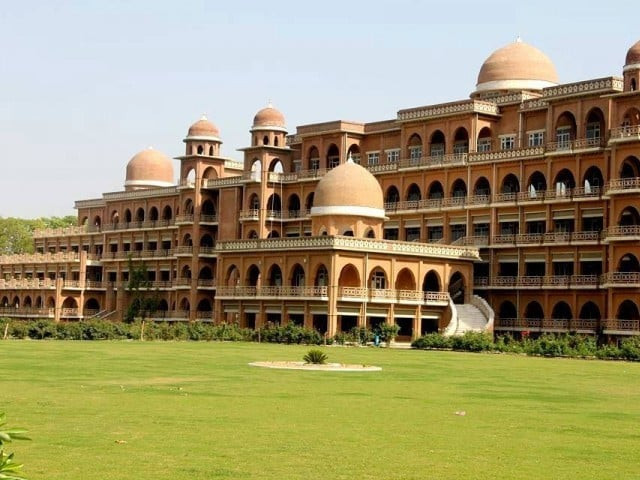'Governance fault lines can be controlled through discourse'
Former IGP says peace can be ensured by inculcating culture of multiple discourses

University of Peshawar. PHOTO: FILE
This was suggested by Syed Akhtar Shah, a former inspector general of police, former home secretary and chairman of the Pakhtun Think Tank. He was speaking at a panel discussion on ‘Tolerance, Diversity and Peace on Campuses’ organised by Media House in collaboration with Hanns Seidel Foundation (HSF) at the University of Peshawar on Wednesday.
Shah began by referring to the use of metaphors by eminent poet and journalist Faiz Ahmed Faiz who referred to a poet’s pen, a painter’s brush and henna hands of a bride to help imagine how beautiful the notion of peace was.
“Since wars begin in the minds of men, it is in the minds of men that the defence of peace must be constructed,” he said while quoting the UNO.
In this regard, he said that universities exist as centres for promoting a culture of learning, innovation and creativity. Such notions, he explained, could only be developed in an environment of diversity, tolerance and peace.
No research in the real sense of the term can take place in a restricted atmosphere with the human history littered with examples of progress made due to a clash of ideas. Those clashes always led to new ideas. Dialectical thinking, thus, is must for progress and peace.
Dialogue and clash of ideas was propelling force for the progress of the society
Even before the advent of Jesus, philosophers such as Socrates, Pythagoras, Plato, and Aristotle engaged in dialogue, questioning things and stated that what appeared may not be real and that the truth must be uncovered.
Published in The Express Tribune, November 8th, 2018.













COMMENTS
Comments are moderated and generally will be posted if they are on-topic and not abusive.
For more information, please see our Comments FAQ